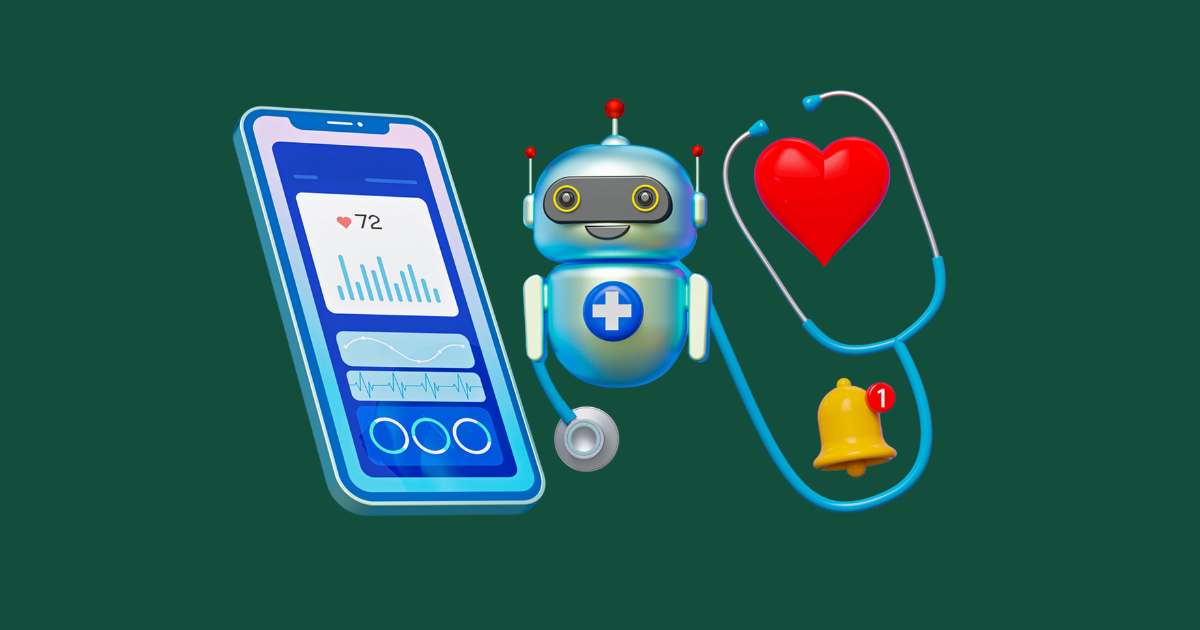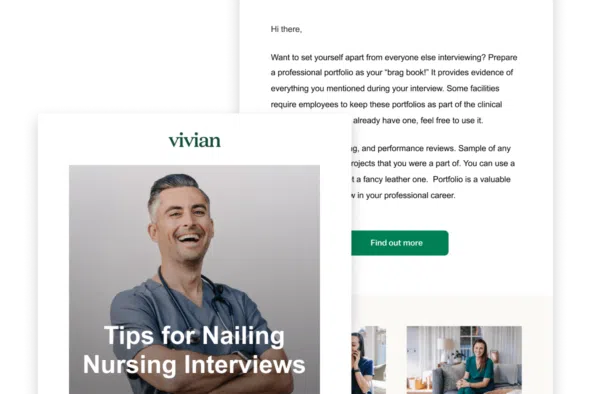The nurses’ station is buzzing with never-ending calls, and your 14:00 appointment for IV antibiotics is running late. Wouldn’t it be a game-changer if there was a solution to lighten the workload? Something to answer the calls and remind patients of appointments.
Envision a technological upgrade transforming your daily practice, reducing the burden of administrative tasks with more time to focus on the patient and their medical needs. In the ever-changing world of healthcare technology, the increasing use of healthcare virtual assistants is one leading industry trend that helps make this vision a reality.
Today, patients can communicate with healthcare chatbots 24/7, quickly addressing medical questions and receiving appointment reminders without tying up phone lines. This evolving technology streamlines workflow and facilitates seamless patient interaction, leading to a more patient-centered approach to care at a reduced cost. However, cyber security concerns and patient apprehension can present challenges to adoption. Let’s take a deep dive into the future of healthcare, where the fusion of advanced technology and compassionate care promises to redefine your professional journey.
What Is a Healthcare Virtual Assistant?
A healthcare virtual assistant is a digital tool designed to assist healthcare professionals and enhance patient care through the use of artificial intelligence (AI) and other advanced technologies. Virtual assistants streamline healthcare by automating tasks, providing valuable information to patients and improving overall efficiency in medical settings. Their primary functions include:
- Patient Interaction: Virtual healthcare assistants can engage with patients to provide information about medical conditions, medications and treatment plans. They can also offer support for mental health and lifestyle management. AI chatbots are available 24/7 to provide patients with reliable medical advice.
- Appointment Scheduling: These assistants streamline the scheduling process, allowing patients to book appointments easily and helping healthcare providers manage their calendars more efficiently.
- Monitoring and Follow-up: Healthcare virtual assistants can monitor patients’ health metrics, send reminders for medication and follow up on treatment plans, promoting continuous care.
- Administrative Tasks: Automating administrative tasks such as billing, coding and updating electronic health records (EHR) contributes to increased operational efficiency.
What Technologies Enable Virtual Healthcare Assistants?
The integration of various technologies makes the existence of healthcare virtual assistants possible. These components work harmoniously to create a sophisticated and efficient digital healthcare ecosystem. Some key components include:
- Artificial Intelligence: The core intelligence of virtual assistants relies on AI algorithms, allowing them to analyze data, understand natural language and make informed decisions.
- Natural Language Processing (NLP): NLP enables virtual assistants to comprehend and respond to human language, facilitating effective communication with patients and healthcare professionals.
- Machine Learning (ML): ML algorithms empower virtual assistants to learn and adapt over time, improving their performance and responsiveness based on user interactions and feedback.
- Voice Recognition: Many virtual assistants utilize voice recognition technology, allowing users to interact through spoken commands, which is particularly beneficial for patients with limited mobility.
- Data Analytics: Advanced data analytic capabilities enable virtual assistants to process large volumes of healthcare data, providing valuable insights for personalized patient care.
Evolution of Virtual Assistants in Healthcare
Healthcare virtual assistants have evolved significantly since 1966, when the first healthcare chatbot, ELIZA, was created to allow patients to simulate a conversation with a psychotherapist. Despite its basic nature, ELIZA served as a foundational model, paving the way for the advancement of this technology.
Healthcare chatbots have gone from basic communication skills and administrative functions in their early stages to the integration of advanced AI, enabling features like personalized health advice and medication reminders. Enhanced NLP has made these assistants more adept at understanding complex medical queries. Modern virtual assistants seamlessly integrate with EHR systems, ensuring a comprehensive approach to patient information management.
Benefits of Healthcare Virtual Assistants
Over the past decade, there’s been significant emphasis on embracing digital and virtual platforms. The pandemic accelerated this shift in healthcare and saw numerous roles and responsibilities transitioned to virtual settings. Many have continued in this virtual format due to the recognized advantages. In the healthcare sector, virtual nursing emerged as a solution to address staffing shortages. Now, virtual healthcare assistants are generating similar enthusiasm by offering a promising approach to alleviating staffing shortages. The following reveals some additional advantages of virtual healthcare assistants.
Enhanced Patient Care
Virtual assistants are transformative in enhancing patient care through improved monitoring and follow-ups. Virtual assistants empower individuals to engage in their healthcare journey by providing timely updates, medication reminders and lifestyle recommendations. This proactive approach contributes to better health outcomes and a stronger patient-provider relationship.
Efficiency and Cost Savings
Virtual assistants shine by streamlining administrative tasks, offering a multifaceted solution to the healthcare industry. They significantly reduce the administrative workload by automating appointment scheduling, billing processes and data documentation.
In her testimonial about the GetWendi chatbot software, Tamera Lagalo from Spring Forest Counseling expressed a similar sentiment regarding its impact on her mental health practice, which includes dozens of providers. Lagalo noted that the chatbot has saved countless hours daily and boosted conversion rates by 40%. This optimized use of resources allows healthcare professionals to focus on more critical aspects of patient care, addressing staffing shortages by redistributing responsibilities more effectively.
Accessibility and Telehealth
Virtual assistants act as catalysts for improved healthcare accessibility, particularly in remote areas. A healthcare chatbot enhances the telehealth experience by ensuring efficient scheduling, patient reminders and follow-up appointments. Patients may experience information overload regarding their next steps following a telehealth appointment. A virtual healthcare assistant can effectively organize this information and offer timely, relevant insights to patients as needed.
Patients can connect with healthcare providers without them being physically present because virtual assistants facilitate remote consultations. This ability enhances patient convenience and contributes to the efficiency of healthcare delivery, making quality medical care accessible to a broader population.
Challenges and Concerns of Virtual Healthcare Assistants
As healthcare continues its digital evolution, integrating virtual assistants introduces both exciting possibilities and legitimate concerns for patients and healthcare providers. Let’s look at some primary concerns and considerations, keeping an eye on the delicate balance between technological advancement and ethical responsibility.
Data Security and Privacy
A paramount concern in the implementation of healthcare virtual assistants revolves around the handling of patient data. The seamless interaction between these digital entities and sensitive health information raises apprehensions about data security and privacy.
Healthcare systems must implement robust measures to mitigate these concerns. These measures include encryption protocols, stringent access controls and adherence to strict data protection regulations. A comprehensive approach to safeguarding patient data is imperative to foster trust in utilizing virtual assistants in healthcare settings.
Patient Apprehension
Patients may harbor apprehensions about using medical chatbot services for several reasons. One primary concern is the fear of inaccuracies or misinterpretation of symptoms, leading to potentially incorrect medical advice.
A study published in the Journal of BMC Health Services Research found that accepting virtual assistants hinges largely on the perceived performance and effort involved and a patient’s confidence in their ability to use the technology. This study underscores the importance of involving patients in the development and implementation phases when introducing a virtual assistant.
Patients also may worry about the impersonal nature of interactions with chatbots while missing the nuanced and empathetic communication often provided by human healthcare professionals. Addressing these concerns through transparent communication, ensuring accuracy and emphasizing the complementary role of chatbots in healthcare can help alleviate patient apprehensions and promote the effective adoption of medical chatbot services.
Technology Limitations
While healthcare virtual assistants have made significant strides, they’re not without limitations. Understanding the current constraints is crucial for maintaining realistic expectations. Challenges may include difficulty in comprehending complex medical scenarios or context-specific information.
Ethical and Regulatory Issues
Deploying virtual assistants in healthcare raises ethical considerations that demand careful examination. As these digital entities become integral to patient care, questions surface about informed consent, accountability and the potential displacement of human jobs by AI. Striking the right ethical balance requires thoughtful exploration and adherence to relevant regulations.
By addressing these issues head-on, the healthcare industry can harness the benefits of virtual assistants while mitigating potential risks, fostering a future where technology and compassionate care coexist harmoniously.
The Future of Healthcare Virtual Assistants
As we stand at the forefront of a new era in healthcare, the trajectory of virtual assistants promises to be even more groundbreaking, with advancements poised to revolutionize patient care and healthcare practices. Many companies are embracing virtual healthcare assistants, with Nuance Communications reporting that 10,000 healthcare facilities worldwide employ their software.
The future of healthcare virtual assistants is intricately tied to the ongoing evolution of AI and ML. Experts foresee these digital entities advancing in intelligence, adept at comprehending intricate medical inquiries and offering responses to increasingly complex questions. As AI expands in healthcare, chatbots are growing in unison. Data Bridge Market Research anticipates the Global Healthcare Chatbots Market will experience a compound annual growth rate of 20.8% from 2023 to 2030.
A significant stride toward a more connected and streamlined healthcare experience involves seamlessly integrating virtual assistants with EHR systems. Envision a future where these assistants effortlessly access and update patient records in real-time, ensuring healthcare providers have the most accurate and up-to-date information readily available.
Looking forward, virtual healthcare assistants are poised to play a central role in personalized, patient-centered care. Through continuous monitoring and analysis of patient data, these digital companions can offer tailored health recommendations, preventive measures and treatment plans. Patients can anticipate an experience with consideration of their unique needs and preferences, fostering a more engaged and empowered healthcare journey.
The emerging trends indicate a future where virtual assistants become indispensable allies in delivering care that’s not only efficient but also deeply attuned to the individual. As we venture into this future, the symbiotic relationship between technology and compassionate care becomes increasingly apparent.
If you’re enthusiastic about the rapid progress in healthcare technology, visit Vivian Health to dive into the latest industry trends and discover what innovations are in the works.








